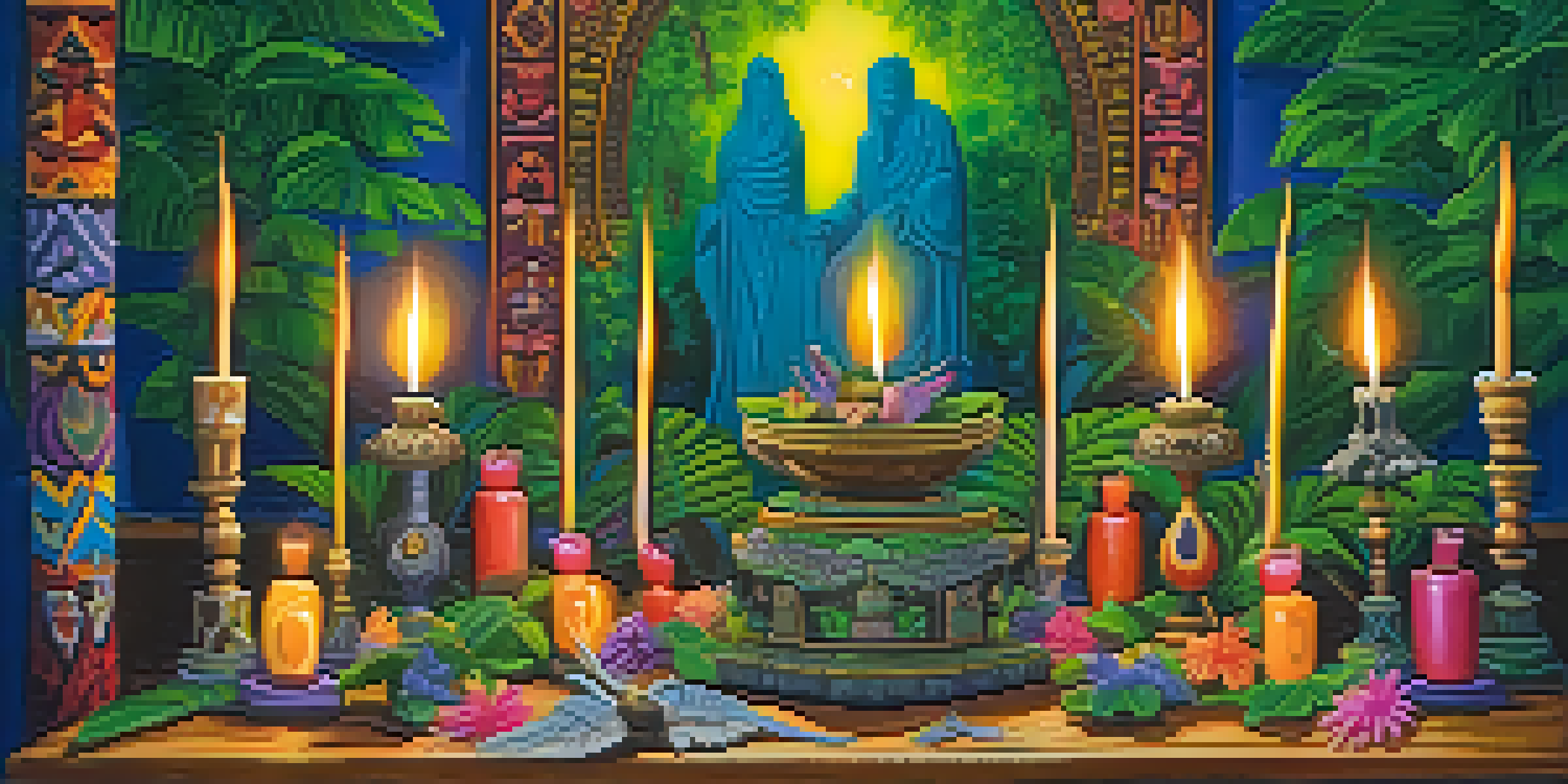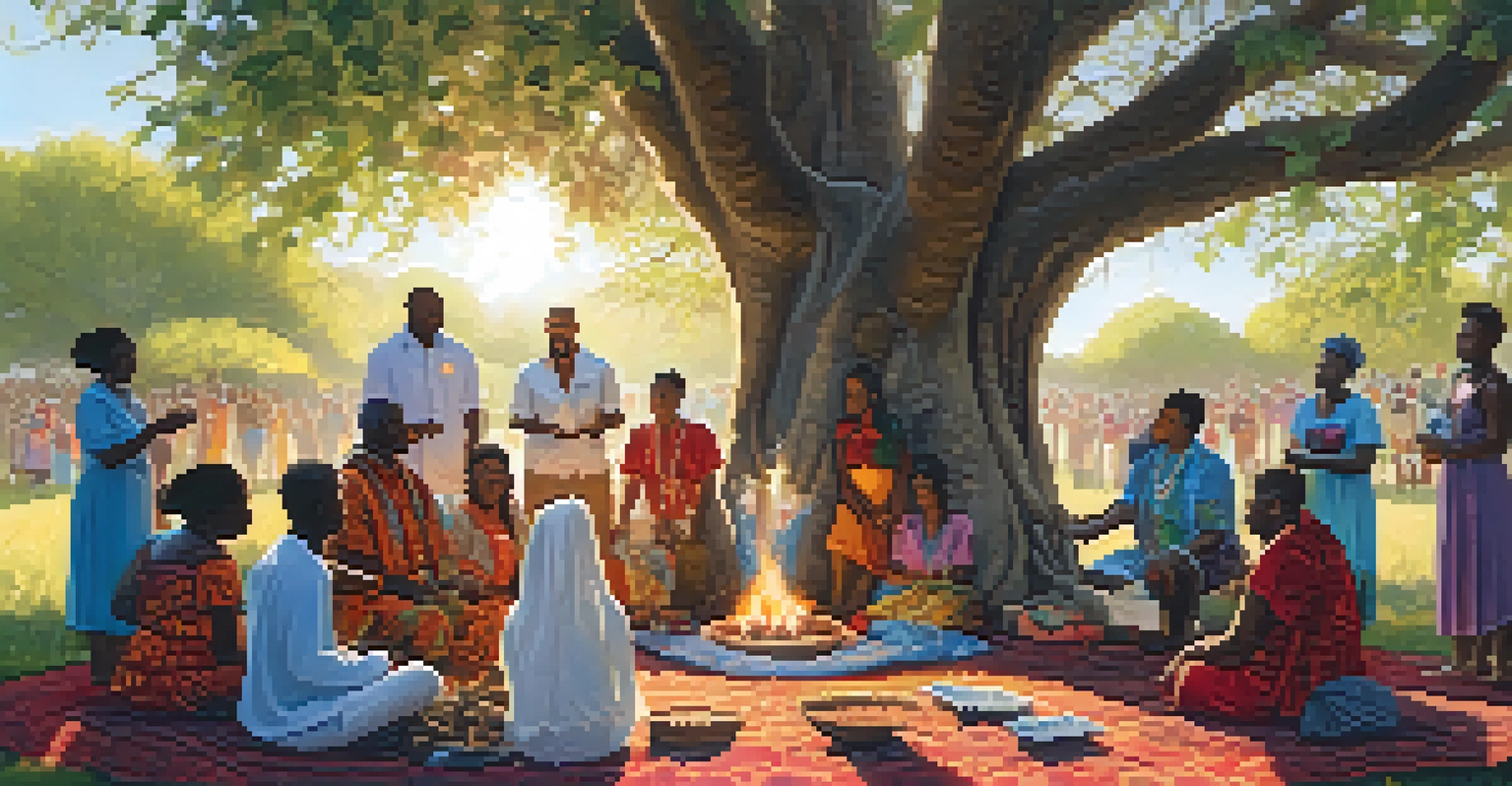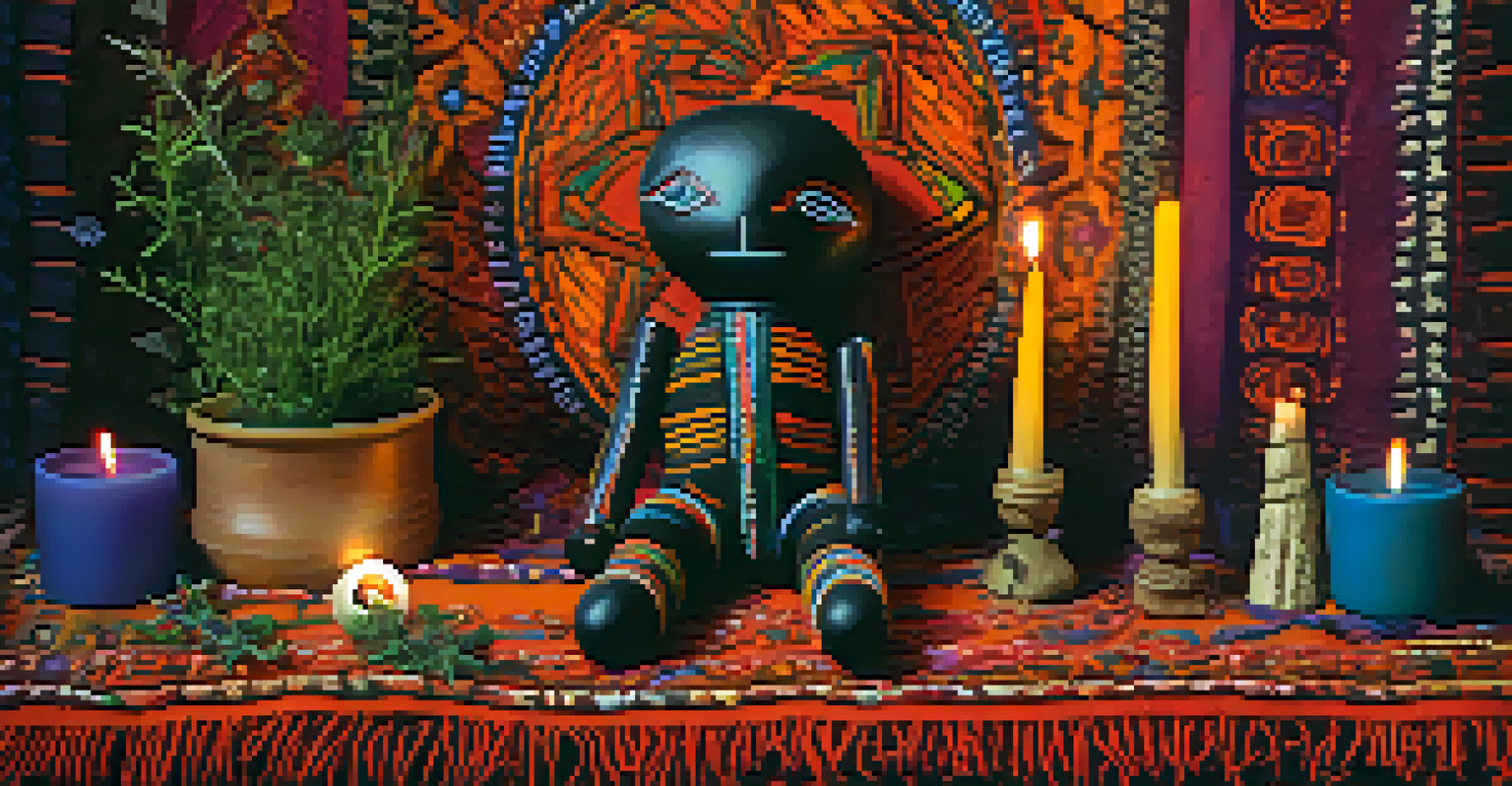Misconceptions About Voodoo: Debunking Myths and Stereotypes

Voodoo is Not Just Black Magic or Witchcraft
Many people mistakenly believe that Voodoo is solely about casting spells or performing black magic. In reality, Voodoo is a rich spiritual tradition that encompasses much more than what the media often portrays. It involves a deep connection to ancestors, spirits, and the natural world, aiming for healing and community.
Voodoo is not a religion of harm; it is a practice of healing and connection.
The misconception often stems from sensationalized portrayals in films and literature. These depictions can lead to fear and misunderstanding, overshadowing the actual beliefs and practices of Voodoo practitioners. Just like any other faith, Voodoo has its rituals and ethics that guide its followers.
In essence, Voodoo is a complex belief system that promotes balance, healing, and community support, rather than the simplistic notion of dark magic. Understanding this can help dismantle the stigma surrounding the practice.
Voodoo is Not a Religion of Violence or Harm
Another common myth is that Voodoo is a religion that promotes violence or harm to others. However, the core principles of Voodoo emphasize harmony, respect, and the well-being of the community. The idea of harming others is contrary to the foundational beliefs of this faith.

Practitioners often engage in rituals that focus on healing and protection rather than revenge or malice. For instance, Voodoo ceremonies might include prayers for health or rituals to seek guidance from ancestors, highlighting the positive, nurturing aspects of the practice.
Voodoo is a Healing Tradition
Voodoo emphasizes community support and healing rather than dark magic or harm.
By understanding that Voodoo is fundamentally about community and connection, we can begin to see it as a spiritual path that prioritizes compassion over violence.
Voodoo Dolls Are Not Tools for Cursing Others
Many people associate Voodoo dolls with curses and malevolent intentions, but this is a misrepresentation of their purpose. In truth, Voodoo dolls are often used as tools for healing, protection, and connection to loved ones. They can symbolize the practitioner and serve as a focal point for prayers or intentions.
Voodoo recognizes the power of community and the importance of nurturing relationships.
The misconception comes from popular culture, where Voodoo dolls are portrayed as instruments of revenge. This portrayal is not only inaccurate but also diminishes the genuine spiritual practices involved in their use. Practitioners may use them to channel positive energy rather than negative.
Ultimately, Voodoo dolls can represent love, healing, and support, rather than the sinister tools they are often made out to be.
Voodoo is a Diverse Practice with Many Variations
Another misconception is that Voodoo is a monolithic practice, but in reality, it is incredibly diverse. Voodoo has various traditions that differ from region to region, particularly between Haitian and Louisiana Voodoo. Each tradition carries its own unique beliefs, rituals, and cultural influences.
For example, Haitian Voodoo emphasizes the importance of the Loa, or spirits, while Louisiana Voodoo incorporates elements from African, French, and Spanish cultures. This diversity enriches the practice, allowing it to adapt and evolve while still honoring its roots.
Voodoo is Diverse and Inclusive
Voodoo encompasses various traditions and is accessible to individuals from different backgrounds.
Understanding that Voodoo is not a single, uniform belief system helps to appreciate its complexity and the cultural significance it holds for many communities.
Voodoo is Not Exclusively for African Descendants
Many people assume that Voodoo is only for those of African descent, but this is a narrow view of the practice. While Voodoo has African roots, it has also integrated influences from Indigenous, European, and Caribbean cultures. Today, people from various backgrounds practice Voodoo, embracing its teachings and traditions.
This inclusivity reflects the adaptability of Voodoo as a spiritual practice. Individuals of different heritages can find meaning and connection within its framework, allowing for a rich exchange of ideas and rituals.
Recognizing that Voodoo is accessible to all highlights its role as a universal spiritual path rather than a closed tradition reserved for a specific group.
Voodoo is Not a Superstitious Belief System
Some view Voodoo as merely superstitious, equating it with outdated beliefs and practices. However, Voodoo is deeply rooted in spirituality and philosophy, offering a comprehensive worldview that addresses life's complexities. It guides practitioners in their relationships with each other, nature, and the divine.
Rather than being based solely on superstition, Voodoo incorporates a blend of rituals, ethics, and teachings that promote personal growth and community welfare. Practitioners often engage in thoughtful reflection and seek wisdom from their spiritual practices.
Voodoo Promotes Empowerment
At its core, Voodoo serves as a source of empowerment and personal strength for practitioners.
By viewing Voodoo through this lens, we can appreciate it as a legitimate spiritual system that encourages a meaningful connection to life and the universe.
Voodoo is a Tradition of Empowerment and Healing
At its core, Voodoo is a tradition that emphasizes empowerment and healing. Many practitioners turn to Voodoo to seek guidance during difficult times, finding solace in its rituals and community support. This focus on healing reflects the nurturing spirit of Voodoo, countering the often negative stereotypes associated with it.
Rituals in Voodoo can serve as a means of personal empowerment, helping individuals connect with their inner strength and resilience. This approach encourages practitioners to take charge of their lives while fostering a sense of belonging within their community.

Understanding Voodoo as a source of empowerment and healing helps to reshape its image into one of positivity and support rather than fear and misunderstanding.